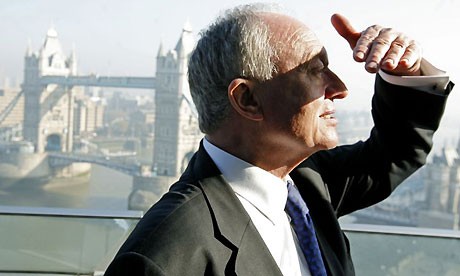Chris Hamnett Fannie Mae Freddie Mac and a nightmare on Wall Street
Post on: 16 Март, 2015 No Comment

A nother day, another stock market slide. Friday saw the Dow fall another 120 points to below 11,000 at its low. The reason is the legacy of the credit crunch and its impact on the US housing market and mortgage institutions. House prices and turnover have now fallen consistently for almost two years and mortgage defaults have risen sharply.
The fear on Friday was that the two biggest institutions which fund and guarantee mortgages in the US – Fannie Mae (the Federal National Mortgage Association) and the Federal Home Mortgage Corporation (Freddie Mac) – could collapse under the weight of bad mortgage debt. Were this to happen the impact could be immense, not least because they jointly own or guarantee mortgage debt totalling $6tn: half the total US home loans.
These fears were intensified on Friday when US banking regulators took control of Indy Mac Bancorp, a California based mortgage lender after withdrawals by depositors led to a run on the bank. This was the fifth US banking failure this year and the third largest in US history and more failures are expected. The Northern Rock collapse attracted a lot of attention in Britain but it is not unique.
Could Fannie Mae and Freddie Mac fail. The answer is no as they are so large and important and the impact of any collapse would be so huge that they will not be allowed to fail. If necessary the Federal Reserve Bank or the US government would step in to prop them up. Were they to go under the whole debt and financial market would be at risk, and with it US capitalism itself. Hank Paulson, the treasury secretary announced steps to stabilise things on Sunday.
What we are seeing in some respects is a rerun of the circumstances in the Depression of the 1930s which led to the formation of both institutions by the US government. At that time because of the high level of unemployment, so many midwest farmers and others were unable to meet repayments on their homes, that repossession was widespread and banks were failing under the weight of bad debt.
Fannie Mae was established in 1938 as part of Roosevelt’s New Deal programme to provide local banks with federal finance and to underpin the housing market. In 1968 it was privatised and turned into a government-sponsored enterprise or GSE. In 1970 the government established Freddie Mac to provide some competition and between them they now account for 90% of the US secondary mortgage market.

As house prices continue to fall, repossessions rise and mortgage debt sours, mortgage lending institutions are finding it more and more difficult to raise capital and increasing the risk of failure. Pressure on American financial markets an institutions is likely to continue until the size and nature of Federal commitment to support the mortgage market is clear. Paulson’s Sunday announcement may prove sufficient but there will be more regional bank failures over the next few months.
What is clear in retrospect is that the problems faced by Bear Sterns and other financial institutions last summer when the market for sub-prime mortgage backed Collateralised Debt obligations or CDO’s they had invested in began to show problems was just the tip of the iceberg of financial problems. As the scale of the sub-prime lending problem began to be clear, so the value and marketability of the packaged CDOs based on them began to shrink while the losses and write-offs suffered by banks began to rise.
What we are now seeing as a consequence of all the reckless lending is nothing less than a fully fledged crisis of financial capitalism which threatens to bring on a recession in the wider economy in its wake.But the crisis is a result of the unfettered drive for profitability with no regard for the wider economic and social consequences.
When markets are booming and profits and bonuses are being made we are told that this is free market capitalism in action, and that governments should not intervene. But when things go wrong governments and central banks are often called on to pick up the pieces and bear the costs. There is an asymmetry between private profit and social underwriting of large scale losses which needs to be rethought and re-aligned in the future.














